Windows 11/10 has brought several new features. Among all of them, the most useful update to customize Windows is a Colored Title Bar. When Microsoft launched Windows 11/10 for all the users, there was no such option to implement color in a window title bar. Whether you chose “Automatically pick an accent color from my background” or chose a particular color manually, it always showed a white title bar with a black title.
But, the latest November update has included an option to add color to the title bar of windows. Previously, there was an option called “Show color on Start, Taskbar, and action center”. But, now it is replaced by “Show color on Start, Taskbar, action center and title bar”. That simply means, if you turn on this feature, you will be able to get a colored title bar in Windows 11/10. Therefore, do follow these steps to get things done.
Get colored Title Bars in Windows 11/10
Windows 10
Press Win + I to open the newly added System settings panel on Windows 10. Following that, navigate through Personalization > Colors. Here you will get an option called “Show color on Start, Taskbar, action center and title bar”.
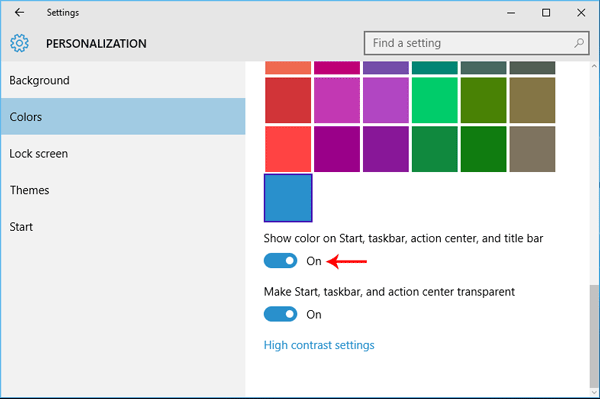
Just toggle the button to enable it. Now, you can change the color manually or let your PC select it from the background.
Windows 11
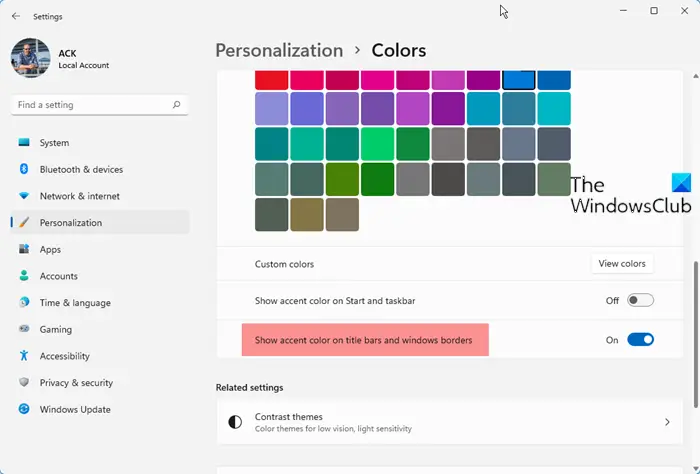
In Windows 11, open Settings > Personalization > Colors > Enable Show accent color on the title bars and windows borders.
Here is a picture that will help you understand the change.
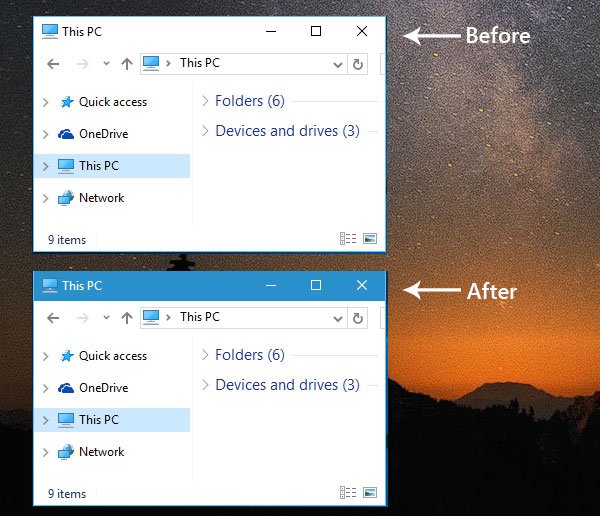
Change Taskbar color without changing title bar color
If you use the above-mentioned tutorial, you will be to change the color of the title bar, start menu, action center, and taskbar at once. But, suppose you want to use color in Action Center, Taskbar, and Start Menu without changing the windows title bar color. For doing this, there is no user-friendly option to include or exclude something in Windows 10. You need to use the Registry Editor to do so.
To do this, first, enable and choose a color using the above tutorial. After that, create a system restore point first and then Run regedit and navigate to the following path:
HKEY_CURRENT_USER\SOFTWARE\Microsoft\Windows\DWM
Here, you will get a key called ColorPrevalence. By default, the value is set to 1. You need to change it to 0. To do so, just double click on the key and set it to 0.
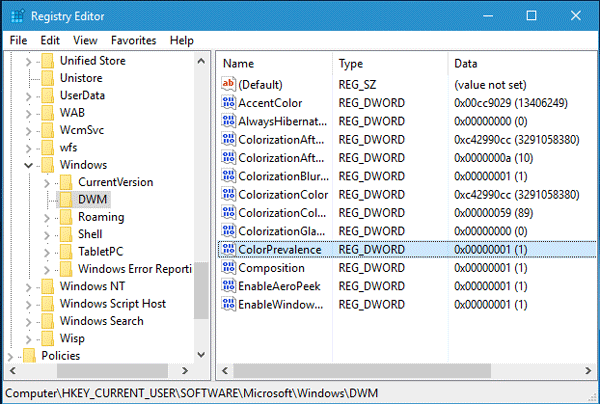
Right after this, you will not find the color in the Title bar, but the selected color will be visible in the background of the Taskbar, Action Center and Start Menu.
Use custom color in Title bar, Action Center, and Start Menu
Suppose, you want to use a custom color in the Title bar, Action Center, and Start Menu, but you do not want to use any color in Taskbar background. To do this, you have to use Registry Editor again. But, before doing anything, you need to follow the first tutorial to change the color of everything. After that, open Registry Editor and navigate through the following path:
HKEY_CURRENT_USER\SOFTWARE\Microsoft\Windows\CurrentVersion\Themes\Personalize
Here, you will get a key called ColorPrevalence. By default, the value is set to 1 that you need to set to 0.
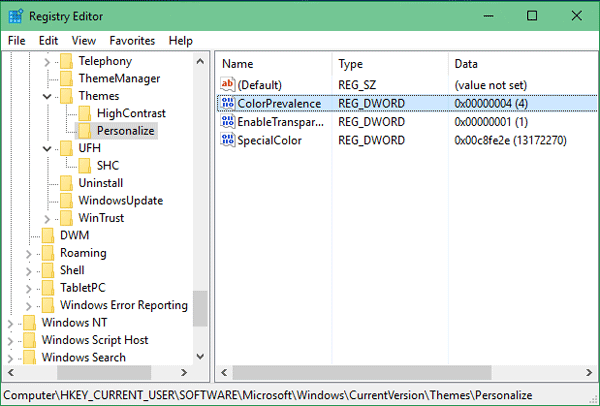
Now, let’s assume that you want to change only the title bar color. For that, just set the value to 2.
Choose custom color
Generally, Windows offers two options for setting a color. First, you can select the “Auto” option. Otherwise, you can pick a color from the list. But, if you do not like any color given in Windows and instead want to choose a custom color, here is the guide. Just navigate through the following path:
HKEY_CURRENT_USER\SOFTWARE\Microsoft\Windows\CurrentVersion\Themes\Personalize
Here, you can find a key named SpecialColor.
Double-click on that and choose your color in HTML code. The change will be effected immediately.
Read: Show accent color on Start, Taskbar, Action Center, Title Bar is grayed out in Windows
UPDATE for users of later versions and Windows 11 and Windows 10
Change Taskbar color without changing the Title bar color
If you use the tutorial mentioned above, you will change the color of the title bar, start menu, action center, and taskbar at once. But suppose you want to use color in the Action Center, Taskbar, and Start Menu without changing the color of the Windows title bar. For doing this, the Anniversary Update has added a dedicated option in Windows 10’s Settings Panel.
First, open the Settings panel by pressing Win + I. Alternatively, you can click on Start menu button and select the settings button or the gear button visible on your left side. Here, you can find Personalization. After that, you will get Color option.
Here, you can find two different options i.e. “Show color on Start, Taskbar, and action center” and “Show color on title bar.”
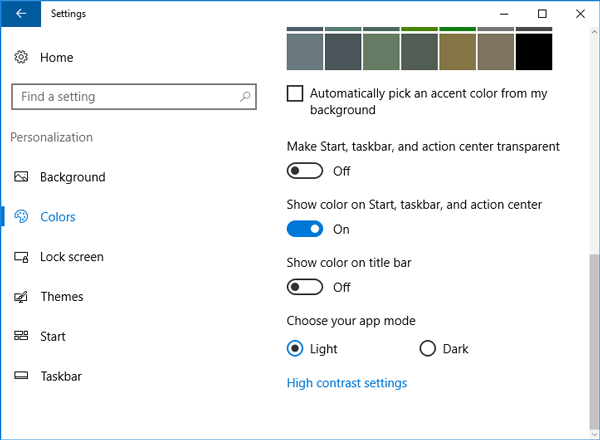
Just turn on the first option and keep the second option as it is. Right after this, you will not find the color in the Title bar, but the selected color will be visible in the background of the Taskbar, Action Center and Start Menu.
In Windows 11, open Settings > personalization > Colors > Enable Show accent color on the title bars and windows borders.
This post will show you how you can enable a colored Title Bar for INACTIVE windows too in Windows. Here is a guide to customizing the Start menu in Windows 10. It might interest you!